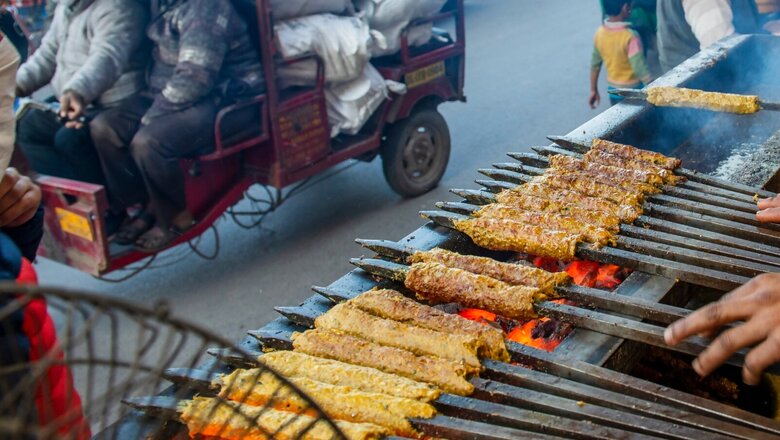
views
The idea of a sudden meat ban at the onset of Navratri or any festival is as bad an idea as the Supreme Court announcing a cracker ban suddenly on Diwali.
The production, sale and consumption of any item which is not illegal in the country should and cannot be banned arbitrarily without policy decisions. Such decisions do not promote rule of law, rather subvert it.
As one trader said on the call to ban sale of meat in South Delhi, ‘They should have told us before-hand, now our stock will go waste.’ And he is absolutely right. The same was true for cracker manufacturers as cracker bans came into place suddenly and without any scientific backing to the notion that crackers were the source of all our pollution problems. The Supreme Court was unjust in taking what should have been a policy decision purely on the basis of populism and activism.
It’s another matter that those who are outraging over calls for meat bans were cheering cracker bans. Which of these items you prefer personally is not relevant to how decisions can be made and what can be banned or not.
Sentiments around food consumption especially when related to religion can be respected across the board but waking up at the last minute and doing it arbitrarily is not the way.
ALSO READ | Meat Ban During Navratri vs Bar Liquor in Ramzan: Has Food Now Become a Political Tool? An Explainer
The fact is for most pious Hindus, and vegetarians otherwise, the sight of open meat sale and open slaughter of animals is absolutely disgusting. In fact, most privileged meat eaters will not be able to bear the sight and stench of local meat shops beyond a point.
There are countless arguments that can be made against meat-consumption – from cruelty to animals to contribution to greenhouse gases – but predominantly Hindu groups who court controversy by demanding such bans suddenly and periodically don’t have the suavity to do it in a manner that pseudo-liberals will find tough to argue against. They end up making a mockery of what is a very serious issue.
What is needed is sustained efforts demanding implementation of standards for meat production and sale, the issue which affects most people on ground, especially those who have to live around slaughter houses and open meat shops. Basic norms of hygiene and decency have to be maintained in such shops. There will be no need for knee-jerk reactions if there is a proper and planned holistic clean-up of the industry. If polluting industries can be moved away from city centres, and other forms of pollution are curbed for the betterment of the society, regulating the meat industry is also a just demand.
What is also needed is a push for governments to regulate meal sale around religious places and, if needed around religious festivals properly. If dry days can exist, there is no reason why no-meat days can’t be implemented. No heavens will fall if people don’t eat a killed animal for few days in a year. If such norms are implemented in advance, it gives both businesses and consumers an opportunity to plan.
But random meat-ban calls show lack of focus, diligence and possibly even sincerity of anti-meat groups in wanting to be heard and bring about actual change in social behaviours. The biggest tragedy is an issue that pertains to civic and societal sense becomes a useless confrontation, often on religious lines and thus can be disregarded as such.
Shivani Gupta is a senior journalist and co-author of ‘Ace against Odds’, Sania Mirza’s autobiography.
Read all the Latest Opinion News and Breaking News here




















Comments
0 comment